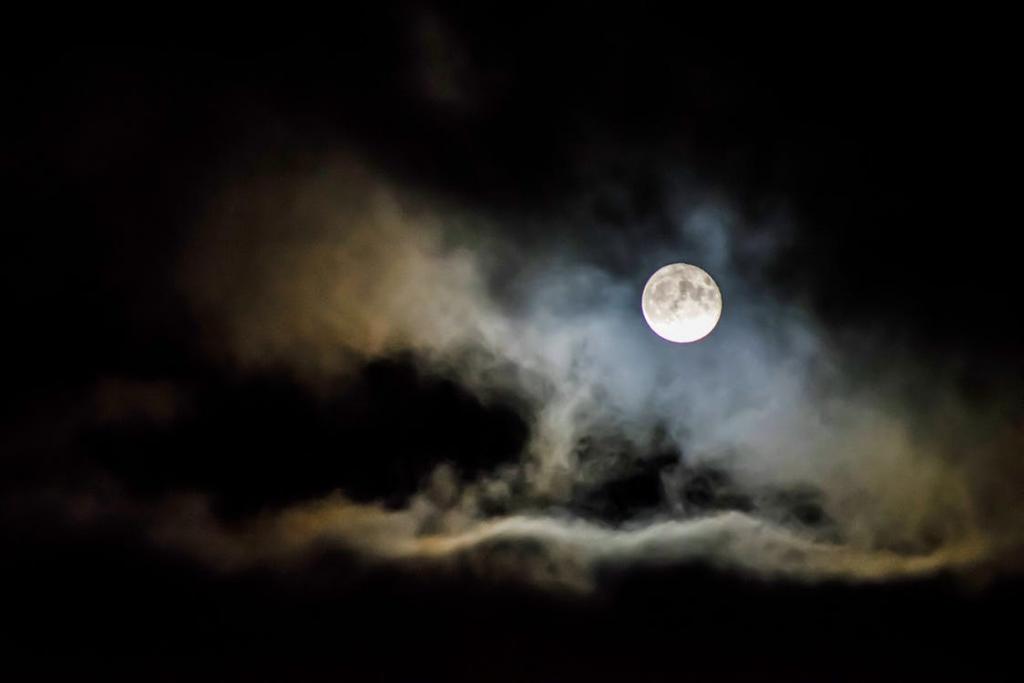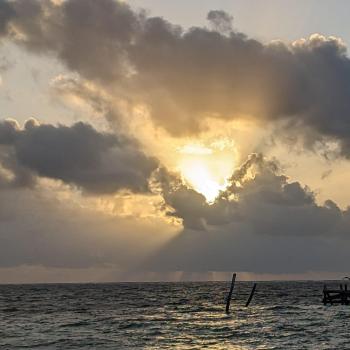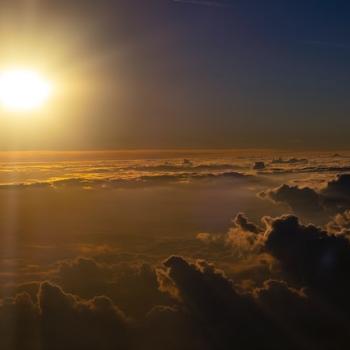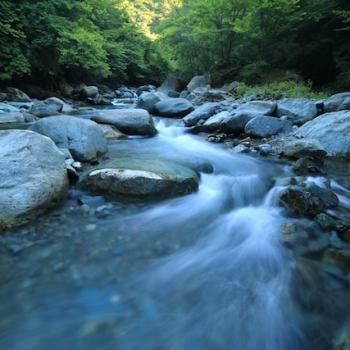Now, in her seventies, Ruth remembers being a girl, the daughter of a sharecropper in South Carolina, one of ten kids. They lived in an old wooden cabin. One day in spring, her fourth-grade teacher said there would be a talent show. Ruth went home troubled, thinking, “What talent do I have?”
She couldn’t sleep that night and paced the back porch before the field. It was then the clouds parted and the moon, almost full, filled her face and turned the boards in the porch blue. Her little mouth dropped and she knew she was part of something larger. When asked the next day, she said her talent was seeing the moon.
Ruth hadn’t thought of this in decades but now she told me about it. I could see the moonlight in her eyes. We both fell silent. Later that night, I stepped out onto the porch where I was staying and looked to the sky, vast and accepting as it was almost seventy years ago.
We often miss the gift of being that leads us to ourselves. We forget that knowing we are part of something larger is a talent all by itself. We’re so focused on our talents of doing that we often ignore our talents of being.
There’s nothing wrong with doing or being. They’re innate capacities we need to be intimate with. While we may be naturally inclined toward doing or being, we need to work hard at both so the two can complete each other and bring us more deeply into life. Grace reveals itself in those moments when doing and being are one: when the effort to inhale meets the air ready to fill our lungs, when the effort to care meets the love waiting like air to fill our hearts, when we put aside our personal history in order to hold someone in pain so completely we’re not sure whose pain it is. We can’t plan or will these moments of grace. But we can practice by bringing our ultimate concern to any given moment.
Under all the pressure to create, build, repair, and achieve, there are tendencies we’re born with, the way a fish is born to swim and a tree is born to grow toward light. As human beings, we’re taught to imagine a purpose, or goal, and to dream and work toward making it come true. But nature works the other way. The purpose of a fish is to swim and the purpose of a flower is to bloom. It doesn’t really matter where the fish swims or how big the flower’s blossom.
We are part of nature too, and so, our quest for purpose begins with knowing our natural gifts. Then our life’s work becomes the inevitable journey of becoming what we already are. The Islamic philosopher and pioneering physician, Avicenna, believed that the immortality of the soul is a consequence of its nature, not a purpose we set out to fulfill.
My dear friends George and Pam are getting to know their newborn granddaughter, Evie, and every first seems a small miracle. At three and a half months, Evie has begun to reach for things and bring them close. This is one purpose of the soul: to reach and bring things close. As Evie grows, what she reaches for and what she brings close will change, but this lifelong gesture is a talent of being, as important as Ruth’s talent in knowing she is part of something larger.
Often in our pain and confusion, we ask, “Where is God?” I would offer that God is alive and well in the bareness of being that lives beneath all that doesn’t matter. And our talents of being lead us there. Our ability to know that we’re part of something larger and our capacity to reach and bring things close help us feel how everything is connected. I’ve discovered that God is in the glow and muscle of every connection. Perhaps this is at the heart of every teaching: that nothing compares to the sensation of being alive in the company of another. That being completely who we are while in the company of other life is noble work that connects us to God.
When Ruth reaches for the moon, when Evie reaches for her rattle, when I reach for the silence under all that confuses me, when you reach beyond your pride for the person you can’t live without, when any of us reach for what seems real in the center of the storm, we’re reaching for God.
Under all the good we do, under all the things we build, we’re asked to treat everyone we meet as a seed that needs the water of our love to open. To have any chance of knowing joy, we must love everything in the way. Simple and hard as this seems, pouring our love on all we meet is another talent of being that brings us alive.
Pouring our love on each other lets us grow our talents of being, which in turn help us find our place. Einstein said, “If you judge a fish by its ability to climb a tree, it will live its whole life believing it’s stupid.” While we can force ourselves to become something we’re not, it never ends well. But our talents of being never leave us. Finding them depends on our belief that teachers are everywhere and that what we love brings us closer to who we truly are.
A Question to Walk With: In conversation with a friend or loved one, describe one talent of being that you have.
This excerpt is from my book, The One Life We’re Given: Finding the Wisdom that Waits in Your Heart (Atria 2016).
*photo credit: Joonas kääriäinen













